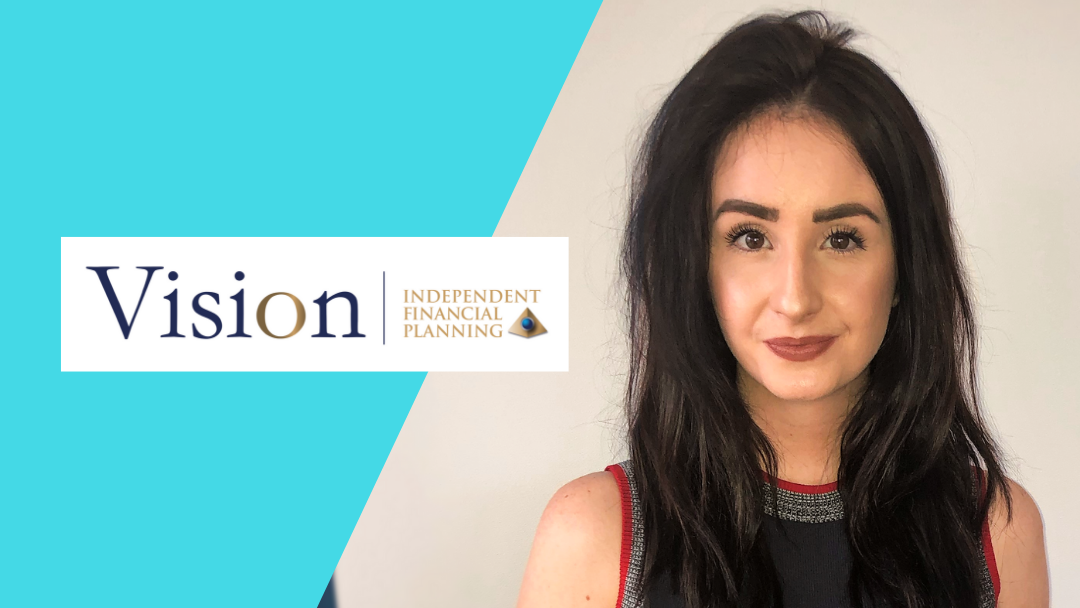Until October 2017, Vision Independent Financial Planning Ltd had never taken on an apprentice, yet fast-forward 18 months and they now have five apprentices out of just 21 staff… and have recently been highly commended as SME Employer of the Year at the Cornwall Apprenticeship Awards.
So, what’s their secret? How are they making it work and was the 10% financial contribution an issue? Or the 20% off-the-job training?
Administration Manager and Vision’s Apprenticeship Champion, Jenifer Hall, tells all…
A bit of background
Vision Independent Financial Planning is a small, but ever growing, network for financial advisers, with a head office based in Falmouth, Cornwall. Their business works from a central office that coordinates work for independent financial advisers across the country, who all run their own businesses. Jenifer’s role is Administration Manager. Her team makes sure paperwork is processed accordingly and financial advisers have the tools they need to do their job efficiently.
So, why did you decide to employ an apprentice in the first place?
“In 2017, my team had lots of work on, but the business wasn’t sure if it could afford to pay for a full-time member of staff. Having been an apprentice myself, I knew we could pay a training wage to an apprentice, and this might make it affordable – reducing some of the work burden while giving someone a chance to learn a career with scope to grow and progress.
“I made the case to my boss and we spoke to Truro & Penwith College, who helped us plan out an apprenticeship programme. A couple of weeks later we had employed Tom Hyde, a 16-year-old apprentice on a Level 2 Business Administration Framework. It turned out to be a great decision as he went on to win Business Admin Apprentice of the Year at the Cornwall Apprenticeship Awards last year.
“Now in 2019, we can look back and see the programme has been so successful. All the apprentices have contributed a huge amount to the business, so we are aiming to take at least one new apprentice every year to help us grow our own talent and bring more young people into financial services.”
Why do you think your programme has been so successful?
“When I did an apprenticeship ten years ago there was no real interaction between the study and the job. You’d just sit and do your college work on your own and it didn’t feel like my employer was really investing in my learning.
“Whereas at Vision, we are very keen on getting involved. We feel our job is to coach entry-level apprentices from education to work, making the transition as smooth as possible.
“We place a lot of effort on personal development and mentoring the young people. We encourage our apprentices to set their own targets and to be able to reflect on what they have done and what they still need to learn to progress.”
Not all of your apprenticeship training is aimed at entry-level jobs though, some is helping people progress to the next stage of their career. Tell us about that…
“Yes, we are offering management-level apprenticeship training to existing staff. For example, Maria Moloney did a degree in Illustration and has ended up working in financial services, because she wanted a job in the area and had the transferable skills that we needed.
“It’s not the career that Maria originally set out on, but now she is in post, she has really found a passion for the industry and wants to continue to progress in financial services. We are able to offer her the Level 3 Team Leader and Supervisor apprenticeship to support her ambitions.”
What about the cost of training and time off-the-job – how do you make it work?
“As a small business, we only pay 10% of the training costs. It’s really not a lot of money at all. It costs about the same to send someone on a two-day course – so this is not a barrier.
“The 20% time off the job is a great investment and, again, it’s really not hard. Every time an apprentice is shadowing someone or is being shown how to do a job – this activity counts towards the 20% target. The only thing you have to do is record it correctly.
“For that 20% time, we try and make it as varied as we can. Of course, apprentices still need time to sit and do their college work, but we also arrange days out of the office shadowing the financial advisers, attending client meetings and really getting to see the advice process from start to finish. This makes them better at their jobs.
“Apprentices can suggest activities they feel would help them learn the job role better too. As long as we feel it would enhance their understanding of the job, we let them do it.”
Any final thoughts?
“I honestly believe that investing in people makes them more loyal and satisfied at work. If the people you work with really believe in you, you’re likely to want to progress and perform well for them. Apprenticeships encourage all of those behaviours.”
Does your business want free, impartial apprenticeship advice? Take our quiz or get in touch!
Quiz Maker - powered by Riddle

